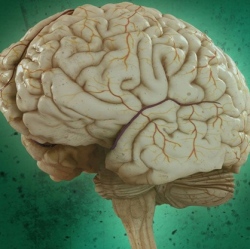
Psychologists show that it is possible to learn through the application of a mild electrical current to the brain, and that this effect can be enhanced or depressed depending on the direction of the current. The medial-frontal cortex is believed to be the part of the brain responsible for the “Oops!” response we have when we make a mistake.
Previous studies have shown that a voltage spike originates from this area of the brain milliseconds after a person makes a mistake.
Robert Reinhart, a Ph.D. candidate, and Geoffrey Woodman, assistant professor of psychology, wanted to test the idea that this activity influences learning because it allows the brain to learn from our mistakes.
Reinhart and Woodman set out to test several hypotheses, including: It is possible to control the brain’s electrophysiological response to mistakes.
Its effect could be intentionally regulated up or down depending on the direction of an electrical current applied to it. This bi-directionality had been observed before in animal studies, but not in humans.
Additionally, the researchers set out to see how long the effect lasted and whether the results could be generalized to other tasks.
Using an elastic headband that secured two electrodes conducted by saline-soaked sponges to the cheek and the crown of the head, the researchers applied 20 minutes of transcranial direct current stimulation (tDCS) to each subject.
